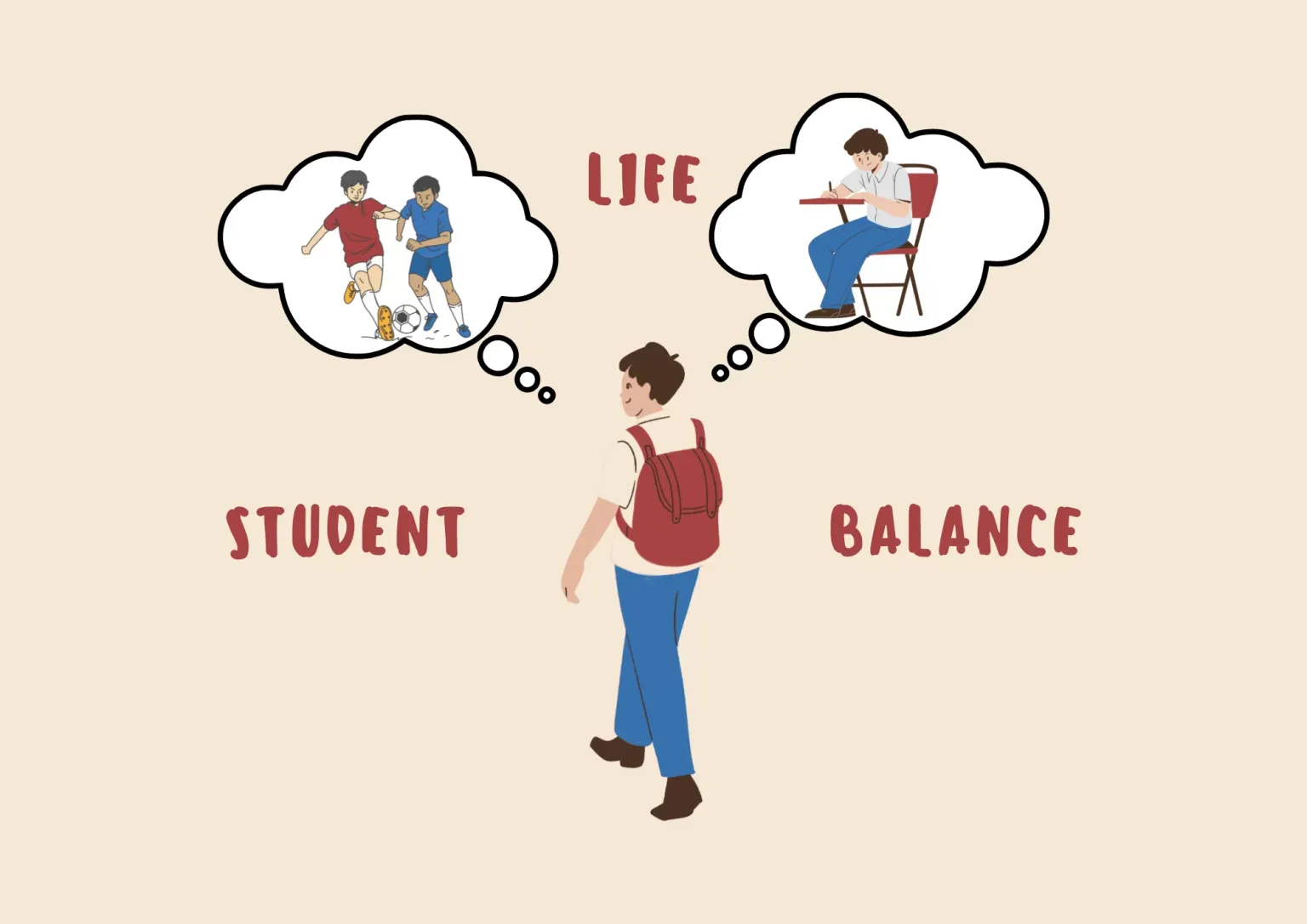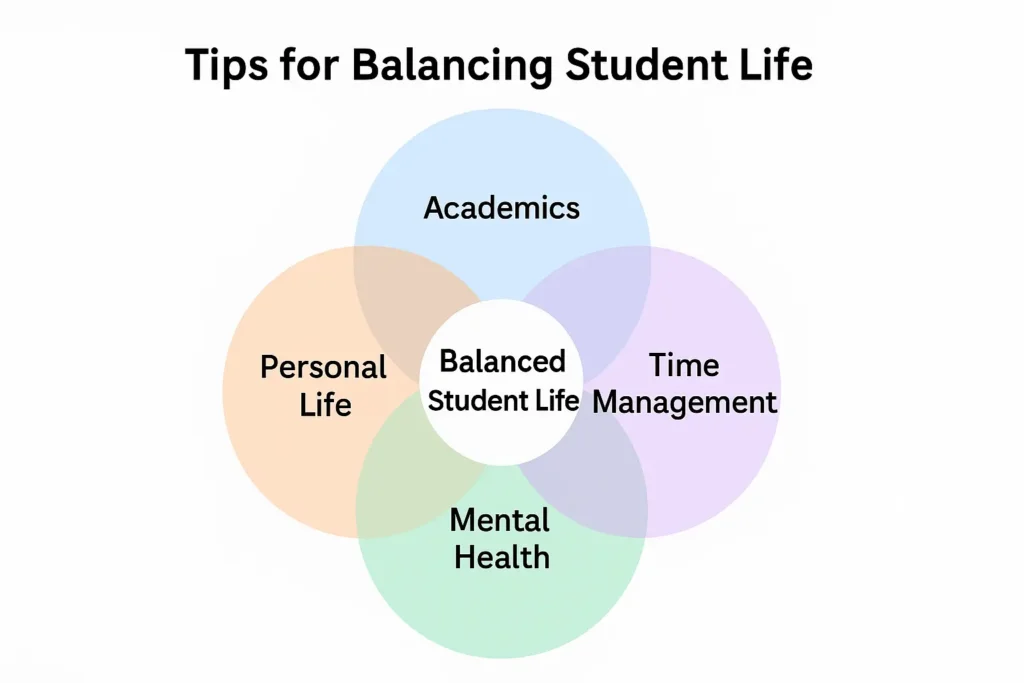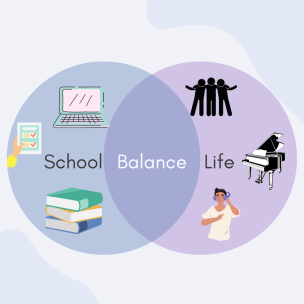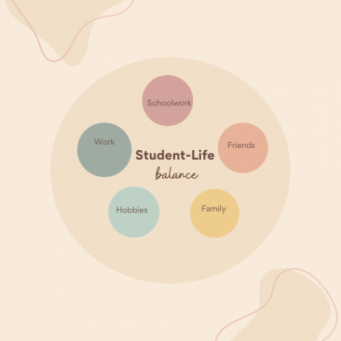Blog
How to Balance Student Life

Student life is full of energy, ambition, deadlines and stress. Whether you’re in high school or university, one of the biggest challenges is learning how to balance student life with academics, relationships, personal care, and goals. Navigating the whirlwind of deadlines, classes, and social life can take a toll on your well-being.
Whether you’re brand new to campus or a seasoned academic, going to school and getting back into the swing of things in the classroom (whether virtual or in-person) can be daunting, especially if you’re also balancing other responsibilities and commitments.
Without balance, students often face:
- Burnout
- Poor academic performance
- Anxiety and stress
- Lack of personal growth
Balance is not about doing everything at once, it’s about doing the right things at the right time.
Discover how maintaining mental health during exam season is crucial for overall balance in our detailed guide on Why Mental Health Matters for Students. I will reflect on “Student Life,” a term that can evoke many thoughts and feelings, and yet so recognizably encapsulates the experiences of anyone continuing their education.
Tips for balancing a student’s life

Here are some tips that I suggest for balancing a student’s life with personal life.
Create A Schedule And Stick With It
The first tip we can offer is to create a schedule. A schedule is vital in balancing your school and personal life as it lets you plan things. With a schedule, you can have all your due dates and other commitments in one central place. When scheduling, two essential parts are equally responsible when determining the success of your planner: creating your schedule and sticking with your schedule.
Take Large Tasks And Break Them Into Smaller Tasks
One large assignment, such as a research paper, can seem like an extensive project, and it can become a very intimidating task to start. By breaking it into smaller tasks, you can turn an intimidating project into several smaller and more manageable tasks across several weeks. One week can be spent on research, followed by creating an outline; the only thing left is revising and finalizing your paper. What was once a scary task is now three small assignments.
Prioritize Academics, But Don’t Obsess
Education is important, but a healthy life and peace of mind matter a lot. We can’t handle academic life if we compare ourselves with others. Set your short-term and long- term academic goals. Ask for help from your mentors, parents or YouTube for better guidance.
A smart and wise student knows that they reach their goals when study life is balanced with rest, hobbies and breaks.
Take Care of Mental and Emotional Health
To understand how to balance a student’s life, mental health matters a lot, especially during exams. Practice 5 min of daily meditation for inner peace. Write what you are grateful for. Sleep at least 7 to 8 hours. Consult a trusted person for better guidance.
Set Goals That Are Clear And Defined
By creating strong goals, you can maximize the benefits of your schedule. SMART goals can set you up to meet all the deadlines listed on your calendar. The easier you can meet all the deadlines, the easier it will be to balance your personal life and school.
Keep Everything Organized
One of our most vital tips is to keep everything organized. Even if you create a firm schedule, set goals, and follow every tip we have listed so far, being unorganized can make it so you do not put everything on your calendar. Also, you could lose specific papers that you need to complete other assignments. This is why keeping everything organized is crucial.
Choosing the Right Extracurricular Activities

For maintaining a balanced and happy student life, the right extracurricular activities matter a lot. It is also good for your physical and mental health. Here are some tips for selecting extracurricular activities for a balanced student life.
- Select a passion and choose the activity in which you have interest.
- Set time boundaries for study and activity.
- Consider such activities that help to develop a skill in you.
Support and Guidance

Maintaining a student life alone is difficult. You must require some help from your elders. Here are some ways to get support.
- Talk to your teachers
- Involve your parents
- Also, take some peer support
Benefits of a Well-Balanced Student Life

Here are a lot of benefits for balancing a student life that provide you with benefits in your life also. Here are some key advantages.
Improved academic performance
Enhanced social skills
Better mental health
Increased college and career prospects
Strategies for Effective Student Life Balance

Here are some strategies for effective student life balance:
- Set clear goals
- Time management skills
- Prioritize task
- Quality over quantity
- Communicate openly
- Self-care is key
For more expert advice on managing student stress and life balance, check out this guide by Harvard Health.
Conclusion
Balancing a student’s life in a single night is not possible. It requires daily efforts, self-awareness and care. Your intention matters in keeping learning and showing up your efforts. Try not to compare yourself with others. Every student looks different in studies, some are hardworking, they learn things actively, and some take time to learn. Some students balance their studies by learning daily and some of them can’t. So never compare yourself with others.
At the end of the day, a well-balanced student life isn’t just about grades. It’s about becoming a better version of yourself every single day.
